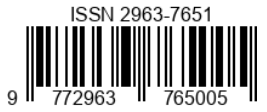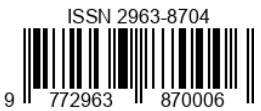Penegakan Kode Etik Profesi Kepolisian
DOI:
https://doi.org/10.55606/jhpis.v3i1.3182Keywords:
Code of Ethics, Policing, Police Code of Ethics EnforcementAbstract
The legal profession is one of the professions that demands the fulfillment of moral values from its development. The main benchmark for being an organizer of the legal profession in enforcing the law lies in the independence of professional organizers and strong moral integrity when facing various problems that are their responsibility. To be a good organizer of the legal profession in carrying out its professional duties in enforcing the law, practitioners who have qualified attitudes, humanitarian attitudes, attitudes of justice, are able to see and place objective values in a case handled, an honest attitude, and have technical skills and ethical maturity. The code of ethics of the legal profession actually functions as an ethical controller for those who carry out the legal profession. With legal professional ethics, it is expected that legal professionals have certain critical individual abilities.The National Police as one of the legal profession that deals directly with the community so that content is needed related to the standards of behavior and actions that are observed, where the Code of Professional Ethics of the National Police of the Republic of Indonesia is basically a guide for all actors of police functions in carrying out their duties in accordance with the laws and regulations in force in their territory contained in POLRI Regulation No. 7 of 2022 concerning the Code of Professional Ethics and Commission on the Code of Ethics of the National Police of the Republic of Indonesia. However, it is undeniable that there are still many violations of the code of ethics that often occur and are committed by police officers which result in low or decreased integrity of the police in the eyes of the public.
Downloads
References
Jhonny Lamintang, 2002, Et al, Pendidikan Kewarganegaraan, Jakarta, Gramedia Pustaka Utama.
Jimly Asshiddiqie, 2014, Peradilan Etika dan Etika Konstitusi, Jakarta, Sinar Grafik
lutfi olot gigantara dan eko prasojo, Kesiapan Sumber Daya Manusia Kepolisian Republik Indonesia Menghadapi Revolusi Industri 4.0 ", jurnal ilmu kepolisian vol.15, no.3 desember 2021.
M. Gaussyah, "Revitalisasi Fungsi SDM Polri dan Anggaran Polri menuju Profesionalime", Kanun jurnal hukum,No. 58, Th. XIV (Desember, 2012), pp. 361-375
Maria Margareth Manik, Achmad Irwan Hamzani dan Kus Rizkianto, "Problematika Penegakan Hukum Pelanggaran Kode Etik di Kepolisian Republik Indonesia", jurnal sosial budaya Vol. 10 No. 1 (2023), pp. 135-144
Undang-Undang Nomor 2 Tahun 2002 Tentang Kepolisian Negara Republik Indonesia
Peraturan Pemerintan Nomor 2 Tahun 2003 tentang Peraturan Disiplin Anggota Kepolisian Negara Republik Indonesia.
Peraturan Kepolisian Republik Indonesia Nomor 7 Tahun 2022 Tentang Kode Etik Profesi Dan Komisi Kode Etik Kepolisian Negara Republik Indonesia
Downloads
Published
How to Cite
Issue
Section
License
Copyright (c) 2023 JURNAL HUKUM, POLITIK DAN ILMU SOSIAL

This work is licensed under a Creative Commons Attribution-NonCommercial-ShareAlike 4.0 International License.

















